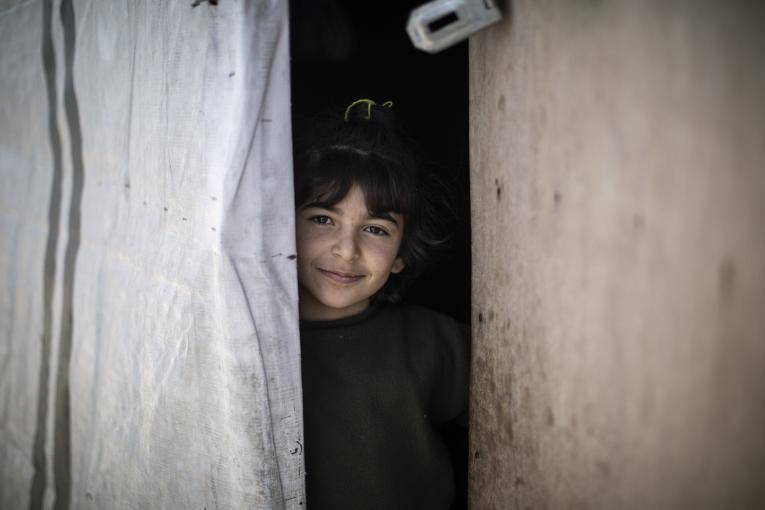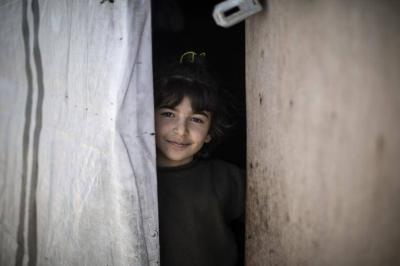Is it chaos, a lack of coordination, or both that led to an overlap between the "Social Safety Net" projects and the "Most Vulnerable Families" (NPTP)? It is not an overlap in the literal sense, but rather a failure in data unification partnership, resulting in a grave mistake that allowed 7,000 families to benefit from both projects at the expense of others who were deprived, despite the expectation of avoiding duplication through a data verification process related to the social safety program, coordinated with the Ministry of Social Affairs directly responsible for the most vulnerable families program.
Since its launch, the team responsible for the most vulnerable families program targeted 130,000 families, from which 40,000 should be selected, in addition to 35,000 families receiving assistance from the Ministry of Social Affairs, totaling 75,000 families. The program began by selecting the most vulnerable families, and data coordination between the Ministry and concerned parties ensured their accuracy, narrowing the margin of error and facilitating timely access to the card for the deserving.
Conversely, after some time, the social safety networks project was initiated, which was supposed to benefit 150,000 families, requiring visits to around 220,000 families due to the lack of budget for visiting additional numbers. The task was assigned to three companies to conduct visits across Lebanon. The companies began their work but halted after conducting 70,000 interviews when it became evident that a group of families, the number equivalent to 7,000, was selected to benefit from the safety networks while also benefiting from the most vulnerable families targeting project. This is considered a grave mistake that should have been avoided, as it strengthens the position of families at the expense of others living below the extreme poverty line.
At the beginning of the work, the Central Inspection received data from the Ministry of Social Affairs, then created its additional data without cross-referencing it with the Ministry’s data, causing the confusion that led to waste and deprivation of approximately 7,000 poor families from their right to benefit.
Concerned sources suggest that the grave mistake was due to the following reasons:
- Poor management of the social safety networks project and the lack of meetings among the relevant committees, specifically the ministerial committee headed by the Prime Minister and the technical committee run by the general directors of the relevant ministries, leading to random operations.
- The mechanisms used in the visiting process did not consider data intersection but merely evaluated the form without clear rules or criteria.
- A lack of transparency.
The oversight could have been avoided through coordination, which raised the discontent of the concerned international bodies, placing what happened within the framework of waste of public funds, which is punishable by law, as the funds are disbursed through a loan provided to the Lebanese state, which is supposed to secure the card for the most vulnerable families, necessitating data coordination among the relevant project offices, rather than working randomly and falling into grievous errors like the one that occurred.
Concerned sources about both projects feared that the goal might be to undermine the project and redirect it for certain benefits that could be political or electoral, serving the objectives of the donor organizations, namely the World Bank and its political and administrative overseers in Lebanon, such as the Presidency of the Government and others.
While the signed agreement clauses binding Lebanon stipulate meetings for the two committees responsible for the social safety project, namely the ministerial and technical committees, the two committees have not met for a period contrary to the law, leading to a lack of oversight, audit, and transparency.
There are no guarantees that such a malfunction and others will not recur, raising questions about the reasons preventing the integration of the two projects, i.e., merging the social safety network with the most vulnerable families program handled by the Ministry of Social Affairs, particularly since the latter holds a certain credibility linked to the availability of various elements, including:
- Data intersection which reduces the margin of error.
- The international community providing grants.
- The most vulnerable families project being the main project.
- The Ministry of Social Affairs being directly concerned with the matter and possessing reliable data.
This idea of merging is not far from the minds of the international community, which is concerned about narrowing the margin of error through data unification and auditing, ensuring that the project is overseen by an official body that is concerned with the most vulnerable families’ affairs and has an understanding of their numbers and data.
Despite months passing since the announcement of the initiation to benefit poor families, the work remains exceedingly slow, delaying many poor families' access to the program, especially since the door to elections has swung wide open, along with the door to favoritism and electoral benefits. Did such factors strike at the social safety project, stripping it of its transparency? Who guarantees its continuation free from these influences, and who will monitor it?




